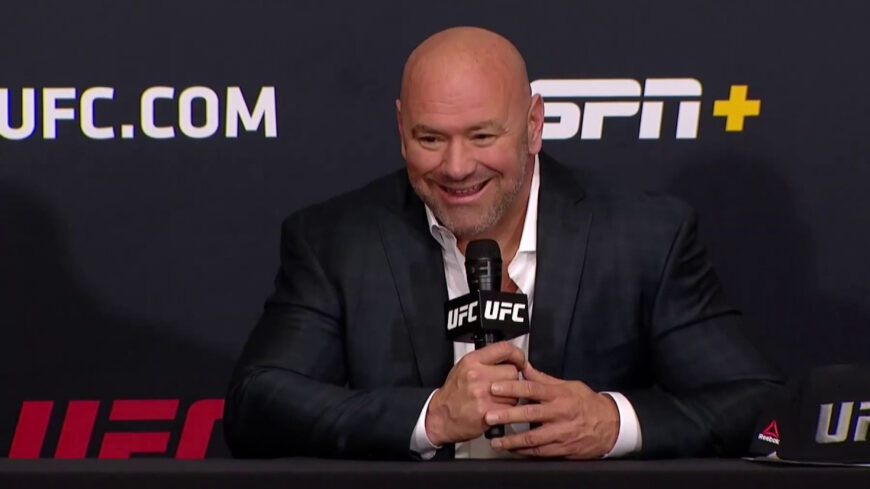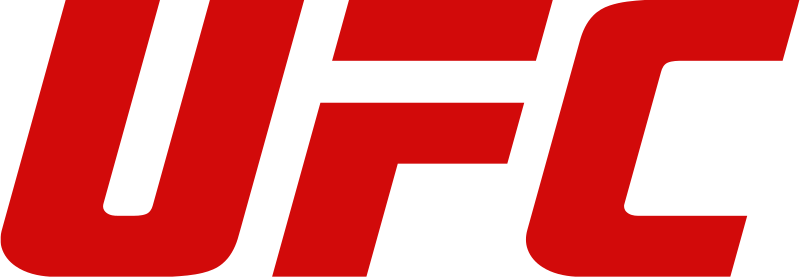Welcome to the exhilarating world of UFC ownership, where the passion for Mixed Martial Arts (MMA) unites with business savvy and strategic partnership. The Ultimate Fighting Championship (UFC), a global phenomenon, has grown significantly since its inception and now reigns supreme in combat sports entertainment.
In this blog post, we delve into the history of UFC’s ownership, Dana White’s influential role as president, financial standing, challenges faced by owners as well as their plans for future growth. So strap in and join us on this thrilling journey behind the scenes of one of the most prominent organizations in professional fighting!
History of UFC Ownership
The UFC was originally founded in 1993 by Art Davie and Bob Meyrowitz, but the ownership of the organization went through several changes over the years.
Founding And Early Ownership
The UFC, or Ultimate Fighting Championship, has a fascinating history that traces back to its founding in 1993 by Art Davie and Rorion Gracie. With the goal of showcasing mixed martial arts (MMA) and determining the best fighting style through an eight-man tournament format, they held their first event at the McNichols Sports Arena in Denver, Colorado. This inaugural gathering brought together fighters from various disciplines such as Brazilian Jiu-Jitsu, kickboxing, wrestling, and boxing – setting the foundation for what would become one of the fastest-growing sports worldwide.
In its early years, UFC struggled with financial troubles and controversies surrounding its violent nature. However, everything changed when brothers Lorenzo and Frank Fertitta purchased it for $2 million dollars in 2001. The Fertittas saw potential in this niche sport despite its challenges; they invested heavily in revamping both rulesets and marketing strategies while also bringing Dana White on board as president. Their combined efforts ushered MMA into mainstream popularity – ultimately transforming UFC into a global brand worth billions today.
With success came inevitable shifts within ownership ranks: In 2016 Endeavor Group Holdings—alongside Silver Lake Partners and KKR—acquired stake in UFC to further strengthen their position within the entertainment industry; however exact ownership distribution remains undisclosed to public till date. Despite several changes throughout history though one thing remains constant – passionate fans who continue supporting this unparalleled combat showcase that began more than two decades ago through humble yet groundbreaking beginnings at McNichols Sports Arena.
Evolution Of UFC Ownership
The evolution of UFC ownership has been a fascinating journey, marked by key milestones and pivotal figures who have shaped the current landscape of mixed martial arts. In its early days, the UFC was founded in 1993 by Art Davie and Rorion Gracie, with the aim to showcase various fighting styles in a no-holds-barred competition. However, it wasn’t until 2001 when Lorenzo and Frank Fertitta purchased the organization for $2 million and created Zuffa, LLC that the promotion began to gain traction as one of the foremost combat sports entities.
One significant milestone in this evolution occurred in 2006 when Zuffa acquired World Extreme Cagefighting (WEC) and held its first event under new ownership in 2007. This acquisition not only solidified UFC’s position as a major player within MMA but also broadened their roster of fighters from around the world. The largest turning point came in 2016 when WME-IMG led a consortium – which included Silver Lake Partners, Kohlberg Kravis Roberts, MSD Capital – to purchase UFC for $4 billion while Dana White maintained his role as President with 9% ownership stake. Under Endeavor Group Holdings’ current majority control alongside these other investors; they continue to shape how Ultimate Fighting Championship grows through strategic partnerships such as ESPN deal or athlete-owned gyms like B.J Penn’s gym brand investment focusing on corporate development opportunities for ultimate success within martial arts industry
Current Majority Owner: Endeavor Group
Endeavor Group is the current majority owner of the Ultimate Fighting Championship (UFC), with a 50.1% ownership stake in the company. Endeavor acquired this controlling interest from Zuffa, which had been owned by the Fertitta brothers until July 2016. Today, Endeavor is a Hollywood entertainment company that invests in various businesses and owns assets including IMG, WME Entertainment, Professional Bull Riders Association, and other ventures.
Ari Emanuel founded Endeavor Group and has actively pursued his vision of expanding its portfolio into new markets such as sports entertainment with UFC acquisition being one prime example of their investment strategy at work. Since its purchase of the UFC parent company Zuffa in 2016 for $4 billion, Endeavor has continued to grow its presence within the MMA industry whilst leveraging synergies across its many entertainment properties.
Endeavour’s long term objectives have been reasonably clear since acquiring ownership; they are looking to buyout minority owners Silver Lake Partners and Kohlberg Kravis Roberts alongside MSD Capital who also hold shares. With each passing year generating higher profits than the last, Endeavour will continue investing heavily into technology platforms like ESPN+ partnerships that improve online streaming platforms’ accessibility further while ensuring fans can stay connected to all things related to mixed martial arts securely.
Other Shareholders: Silver Lake Partners, Kohlberg Kravis Roberts, MSD Capital
Aside from Endeavor Group, there are three other major shareholders associated with UFC ownership. These include Silver Lake Partners, Kohlberg Kravis Roberts (KKR), and MSD Capital. Together, these three companies own 49.9% stake in the UFC – an investment worth $4 billion that was made in 2016.
KKR is no stranger to huge purchases and acquisitions; it was founded way back in 1976 by Jerome Kohlberg, Henry Kravis, and George Roberts. On the other hand, Silver Lake Partners specializes in technology investments while MSD Capital focuses on long-term business interests of Michael Dell’s family office.
While Endeavor Group is widely recognized as the majority owner of UFC with Dana White serving as its public face, these private equity giants play a crucial role when it comes to funding UFC’s various projects and initiatives – which includes expanding its reach globally while growing support for MMA among mainstream sports fans worldwide.
Common Members of UFC ownership include DAW (Dana White), SLP Basquiat (Silver Lake), SL Technology Investors (Silver Lake), SLP AIV III (Silver Lake), KKR Cage Fund I LP(Kohlberg Kravis Roberts) and UFC Co-Invest (“the former owners).
The Role Of Dana White In UFC Ownership

Dana White plays a crucial role in UFC ownership as the organization’s president and spokesperson, contributing significantly to its growth and expansion. For more on his contribution to the company and insights into challenges facing UFC ownership, keep reading.
White’s Appointment As President
After convincing the Fertitta brothers to purchase the UFC, Dana White was appointed as the new President of the organization. With his extensive background in martial arts and experience in managing gyms, White was seen as a perfect fit for this role. Despite not being technically an owner of the UFC, he did receive a 10 percent stake in the organization after helping to revitalize it.
Since taking on the role of President, White has been instrumental in transforming MMA into one of today’s most popular combat sports. He has played a major part in negotiating lucrative broadcasting deals with ESPN and other sports networks, which have brought increased exposure to MMA across America and beyond. Additionally, White has made several efforts to expand UFC internationally with events now held throughout North America, South America and Europe. His visionary leadership continues to play a critical role in shaping both MMA and Ultimate Fighting Championship’s future growth strategies going forward.
White’s Relationship With UFC Ownership
Dana White’s relationship with UFC ownership has been critical in the growth and success of the organization. He played a vital role in the acquisition of the UFC by his childhood friend, Lorenzo Fertitta, and participated actively in running day-to-day operations since then. This longstanding partnership fostered loyalty, trust, respect and helped build industry connections that have proven essential to White’s tenure as president of the competition.
White is known for his negotiation skills, entrepreneurship spirit and strategic planning abilities which have helped steer the UFC towards financial stability over time. His contribution to growing MMA sport has been invaluable as evident from key accomplishments such as landing lucrative sponsorship deals including a multi-million dollar contract with Reebok. White also brokered game-changing partnerships such ESPN that not only broaden audience reach but also increase revenue streams for the promotion.
The longtime leadership team at UFC sees White continuing to serve an integral role in their company despite its recent $4bn sale to Endeavor Group Holdings Inc., where he maintains a minority stake alongside Lorenzo and Frank Fertitta following their step-downs from executive positions in 2016. The consistency displayed by Dana’s relationship with UCF ownership sets him apart as one of Mixed Martial Arts’ most iconic figures who continues on paving new grounds for future growth & expansion strategies meeting ever-growing demands with various technological advancements we’ve seen recently working collaboratively toward developing increasingly realistic online streaming platforms via ESPN+ service or other partners making it easier than ever before experience personal connections between fans worldwide through cutting-edge technology well into this next decade!
White’s Contribution To UFC’s Growth
Dana White’s contribution to the growth of the UFC has been nothing short of extraordinary. As president and owner, his leadership has transformed the UFC from relative obscurity into a billion-dollar industry leader. White was convinced that with proper management, the UFC could become a multi-billion dollar enterprise. His vision became reality as he propelled MMA into mainstream acceptance.
White’s innovations have significantly contributed to making the UFC a household name in combat sports today. He spearheaded initiatives such as “The Ultimate Fighter” reality show, which helped to increase both fan engagement and athlete exposure. Additionally, he played an instrumental role in securing major sponsorship deals with brands like Reebok and ESPN, greatly enhancing revenue generation for fighters.
Overall, White’s excellent business acumen coupled with his passion for combat sports makes him one of the most pioneering figures in modern-day MMA history. He is widely considered as one of the driving forces behind cultivating MMA’s unparalleled popularity today through innovative event promotion strategies and exceptional leadership skills – all while creating a thriving industry that generates billions annually worldwide.
Financial Standing Of UFC Ownership
The financial standing of UFC ownership is a crucial element in the growth and success of the organization, and understanding it can provide insight into future plans for expansion. Discover more about UFC’s net worth, ownership percentages, revenue streams, and previous sales to gain a deeper understanding of the company’s financial performance.
Net Worth Of UFC
One of the key measures of UFC’s success is its net worth, which stands at an impressive $4.2 billion as of 2021. This figure represents a significant increase from the $2 million that current owner Endeavor Group paid in acquiring the company in 2016. The majority ownership by Endeavor and other shareholders such as Silver Lake Partners has contributed to this growth, enabling significant investments in talent recruitment, event production, and technology infrastructure.
Dana White’s role cannot be overlooked when discussing UFC’s financial standing. As president of the organization since 2001, he has overseen its transformation from a niche sport into one with mainstream appeal worldwide. White’s contributions have been instrumental in securing lucrative broadcast deals with ESPN and international media partners while expanding revenue streams through sponsorships and merchandising opportunities.
While there are challenges facing UFC ownership regarding public perception and legal disputes over fighter compensation and safety concerns that put pressure on finances, but Moody’s estimates show that despite these challenges it makes up around 90% of the total business for Endeavor-owned sports properties making it still dominant within its industry. Nevertheless, established governance structures ensure transparent financial practices and responsible conduct towards stakeholders such as fighters’ welfare programs initiated by Dana White himself are just some examples demonstrating how MMA is trying to fulfill social responsibilities alongside commercial imperatives.”
Ownership Percentages And Previous Sales
UFC ownership has gone through several changes since its inception. The current majority owner of the UFC is Endeavor Group Holding, with a market share of 50.1%. The remaining 49.9% ownership is divided between Silver Lake Partners, Kohlberg Kravis Roberts, and MSD Capital. Prior to this, the UFC was owned by Zuffa LLC., which was purchased for just over $4 billion in 2016 by a consortium of investors led by WME-IMG.
The Fertitta brothers are still minority owners of the UFC despite selling much of their equity to other investors before eventually selling entirely to WME-IMG’s consortium in 2016. Furthermore, Dana White’s consecutive stint as the president since he assumed office on January 2001 remains unparalleled till date.
The financial performance records show that previous sales have been very lucrative for stakeholders who had invested early in the company when it was not yet popular or mainstream. This growth also reflects positively on those who bought into the company during later rounds because they would stand to make significant gains if they decided to sell at any point during these successful years.
UFC’s Revenue Streams And Financial Performance
The UFC’s financial standing and revenue streams are a crucial aspect of the MMA organization. The UFC had its best financial year in 2021, with some estimates suggesting revenues around $900 million. This impressive number is due to various factors such as merchandise rights agreements and their fighter-centric approach. In fact, fighters are entitled to 10% of gross revenues from products bearing their name.
The UFC’s financial success can also be attributed to its partnership with ESPN and other sports networks that allow for online streaming platforms. Endeavor Group, with a majority ownership stake in the UFC, has invested heavily in technological advancements that make it possible for fans worldwide to enjoy their favorite fights at any time on various devices.
Endeavor’s owned sports properties segment generated $277.3 million for Q4 alone and $1.1 billion overall – highlighting just how vital MMA is among Endeavor’s sport businesses. These figures show that the UFC remains an integral part of global athletic entertainment while maintaining long-term partnerships and continuing to grow exponentially year over year through expanding markets like China, Europe & more- proving there is no stopping this high-performance sport anytime soon!
Challenges And Future Growth
Despite its immense success, the UFC faces ongoing controversies and criticisms that threaten future growth. Discover the challenges of maintaining a sports entertainment empire, as well as the plans for expanding and growing the sport in this informative article.
Ongoing Controversies And Criticisms
Despite its growth and success, the UFC has faced ongoing controversies and criticisms throughout its existence. From concerns about the violent nature of mixed martial arts to accusations of organizational mismanagement, there have been no shortage of challenges for the organization to navigate.
One recent controversy involved renowned coach and gym owner James Krause, who was suspended by the Nevada Athletic Commission due to his role in a case involving fighter Tim Elliott. The suspension sparked a debate among MMA fans about whether or not Krause’s punishment was fair and raised questions about how the UFC manages disputes between fighters and coaches.
Additionally, some UFC athletes have spoken out against what they perceive as unfair pay practices by the organization. This has led to debates over labor rights within combat sports and calls for increased transparency on how revenue is distributed among fighters.
Despite these ongoing controversies, however, the UFC remains a dominant force in both combat sports and popular culture overall. As it continues to expand internationally through partnerships with media outlets like ESPN and other sports networks, it will be interesting to see how it addresses these issues while still maintaining its position at the forefront of MMA innovation.
Legal Disputes And Resolutions
The UFC ownership has been no stranger to legal disputes and resolutions throughout the years. One of the most significant ongoing disputes is with fighter contracts and pay suppression, where fighters argue that they are not receiving fair compensation for their performances. In 2020, a judge granted class-action status in a lawsuit brought by fighters against the UFC, paving the way for potentially hundreds of fighters to join forces in their suit.
The UFC also has rules regarding arbitration, which state that each case shall be determined on its own facts, and previous decisions should not bind arbitrators. This clause could come into play if any future legal issues arise around fighter contracts or other areas of dispute resolution. Additionally, the new majority owners’ representation across various media platforms have raised concerns about conflicts of interest within the organization. These controversies highlight some of the complexities involved with running a successful sports industry business while maintaining ethical standards and corporate governance.
Overall, it’s impossible to deny that there have been challenges facing UFC ownership over time – but despite these obstacles, Dana White’s leadership has helped guide them through tough times while positioning them as an industry leader poised for continued growth into new markets like China or India thanks largely due to partnerships with companies like ESPN and other sports networks looking to expand coverage worldwide further enhancing competitive spirit all around Martial Arts industries today.’
UFC’s Code Of Conduct And Ethical Standards
UFC’s Code of Conduct is an essential part of their athlete contract, and it aims to hold fighters accountable for their actions. The code outlines the ethical responsibilities of UFC athletes, including standards of behavior that extend beyond the octagon. For instance, the code prohibits discrimination based on race, gender identity or expression, sexual orientation or any other protected characteristic. It also covers areas such as anti-doping measures and fighter conduct during media events.
The organization takes ethical considerations seriously and has set up dispute resolution mechanisms that apply when conflicts arise between fighters or with management. Dispute resolution may take various forms from negotiation through mediation to arbitration where a neutral third party helps resolve issues. Such mechanisms help maintain trust in the sport and prevent unnecessary legal disputes which could affect fighters’ careers negatively.
To ensure they meet industry standards best practices for ethics codes means that this can enhance UFC’s reputation within MMA sporting events while strengthening its social responsibility efforts by aligning itself with organizations committed to promoting socially responsible practices across various sectors.
Plans For Expansion And Growing The Sport
The UFC is constantly looking for ways to expand its global reach and grow the sport of mixed martial arts. One way that they are planning on doing this is through their upcoming world tour, which will take place in various locations across the globe. The tour will feature some of the UFC’s top fighters, and it will be an excellent opportunity for fans to see their favorite fighters up close and personal.
The UFC has also been focusing on growing their women’s division in recent years. Female fighters like Ronda Rousey and Amanda Nunes have become major stars within the MMA community, helping to bring more attention to women’s fighting. Additionally, Fox Sports 1 has become a significant partner with the UFC, broadcasting many fights throughout each year. It’s clear that these efforts are paying off as MMA continues to gain popularity around the world.
Finally, technological advancements such as online streaming platforms have made it possible for fans all over the world to watch UFC events live. This means that even if you’re not located near one of their venues or unable to attend a fight in person, you can still experience all of the excitement from wherever you may be located. With strategic plans for expansion and continued growth initiatives underway, there is no doubt that MMA will remain an exciting modern sport with a bright future ahead!
Technological Advancements In UFC
UFC has recently made significant strides in the technology department, partnering with online platforms like ESPN+ to bring live streaming events to fans worldwide. Find out how these advancements are changing the way UFC ownership approaches event scheduling and distribution of content by reading more.
Online Streaming Platforms
Technological advancements have significantly changed the game for the UFC, including their approach to online streaming platforms. No longer just a sport, the UFC has begun operating as a technology platform with live streaming at its core. Through exclusive distribution deals with ESPN+ and other sports networks, they’re able to reach an even larger subscriber base for pay-per-view events.
This shift towards digital media means that fan engagement can be enhanced through content creation and distribution on video-on-demand services. In addition to monetizing traditional revenue streams more effectively like broadcasting and sports betting, the UFC is also exploring new ways to generate revenue through partnerships with video game companies and sponsorship opportunities with socially responsible organizations. With constantly evolving technology, it’s clear that online streaming platforms will continue to play a crucial role in shaping the future of combat sports like MMA.
Partnership With ESPN And Other Sports Networks
One of the most significant technological advancements in UFC ownership is its partnership with ESPN and other sports networks. In 2018, ESPN agreed to a five-year deal with UFC, making it the exclusive digital and linear distributor of UFC events in the US. With this partnership, ESPN now showcases up to 42 live events annually for MMA enthusiasts worldwide.
This multiyear contract between UFC and ESPN also includes exclusive content such as pre-fight shows, interviews, highlights, behind-the-scenes stories, and more. It allows fans to access all things related to the sport through digital distribution platforms like streaming services on their mobile or web devices.
The media partnership has become an essential aspect of ownership for Dana White’s company as it helps increase valuation and corporate responsibility while maintaining a positive public image. Through their negotiations with different networks over time, UFC has demonstrated effective reputation management strategies by focusing on promoting ethical standards that encourage community outreach programs and partnerships with socially responsible organizations within the industry.
FAQs
Who is the current owner of UFC?
The current owner of UFC is Endeavor Group Holdings, which acquired the organization for over $4 billion in 2016.
Who were the previous owners of UFC?
UFC was previously owned by Zuffa LLC, a company founded by brothers Lorenzo and Frank Fertitta III in 2001. They sold their remaining interests to Endeavor in 2016.
What changes have occurred since Endeavor took ownership of UFC?
Under Endeavor’s ownership, UFC has expanded its global reach with events held in new markets such as Russia and China. They also launched a streaming service called ESPN+ and signed a partnership deal with Reebok for fighter uniforms.
Does Dana White still hold a significant role with the company as an owner or executive?
Yes, Dana White remains involved with UFC as its current President and minority stakeholder under Endeavor’s ownership. He continues to oversee day-to-day operations including matchmaking, event production, and interfacing with fighters and media outlets alike on behalf of the organization.
Conclusion
In conclusion, the ownership of UFC has evolved significantly since its inception. The current majority owner, Endeavor Group, along with other shareholders Silver Lake Partners, Kohlberg Kravis Roberts and MSD Capital have propelled the company’s financial standing to new heights.
Dana White’s contribution as president in growing the organization is unquestionable. Despite ongoing controversies and criticisms, such as ethical standards and legal disputes with fighters, UFC remains a dominant force in combat sports entertainment due to technological advancements like online streaming platforms partnership with ESPN and other sports networks. As fans continue to flock to see their favorite fighters battle it out in the octagon, it’s clear that UFC ownership will remain at the forefront of this thrilling industry for years to come.
References
- Wikipedia. (n.d.). Dana White. Retrieved March 25, 2023, from https://en.wikipedia.org/wiki/Dana_White
- UFC. (n.d.). UFC History. Retrieved March 25, 2023, from https://www.ufc.com/history-ufc










